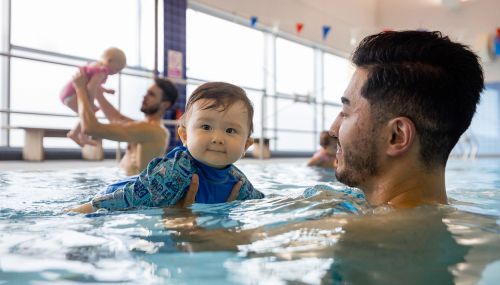
- Our studies
- Our research
- Publications and resources
- Data access and training
- About
- News
- Events
- Get in touch
- Join our mailing list


Data from Wave 1 of Children of the 2020s, the first national longitudinal study of babies to be launched in a generation, are now available.
This latest data release includes information collected from more than 8,500 families and their babies, and offers new opportunities for research on child development and the early years learning environment.
Children of the 2020s is the first nationally representative birth cohort study of babies since the Millennium Cohort Study was launched at the turn of the century. The study follows babies, born in England between September and November 2021, and their families. The first wave of data collection took place in 2022, when the children were 9 months old.
Commissioned by the Department for Education and led by researchers at UCL’s Division of Psychology and Language Sciences and Centre for Longitudinal Studies, the study will continue to survey families annually for at least the first five years of their children’s lives.
This first wave of data features detailed information on various facets of family life and the early years, including:
Wave 1 consisted of a face-to-face quantitative interview with each baby’s primary caregiver, defined as the parental figure who spent most time caring for them, and an online survey with the non-primary caregiver, which could be either a resident or non-resident parent. There are two Wave 1 datasets, one containing the primary caregiver data and another containing the non-primary caregiver data.
A total of 8,628 primary caregivers, and 2,199 other caregivers, participated in Wave 1, providing data on 8,733 cohort children.
The sample for the Children of the 2020s study was selected from HMRC Child Benefit records for all registered births between September and November 2021.
The study was designed to boost the sample in the most deprived quintile of areas. This aims to ensure there is a large enough sub-sample to allow research into the impacts of economic deprivation on families and their children’s development. The over-sampling was based on the aggregated Income Deprivation Affecting Children Index (IDACI) scores for lower super output areas (LSOAs).
Children of the 2020s is part of UCL’s rich portfolio of cohort studies, which follow the lives of people born in 1946, 1958, 1970, 1989-90 and 2000-02.
Study director, Professor Pasco Fearon (UCL Psychology and Language Sciences and the Centre for Family Research at the University of Cambridge) said: “We are delighted to announce the release of Wave 1 data from the Children of the 2020s study. This information will offer myriad research opportunities for those interested in exploring early child development and the home learning environment.
“The evidence generated by the study will answer important scientific and policy questions, which will help to… improve the lives of families with young children in England both now and in the future.”
Professor Pasco Fearon, UCL Psychology and Language Sciences and the Centre for Family Research at the University of Cambridge
“As the first national study of babies to be launched since the millennium, these new data will enable researchers to learn more about the dramatic shifts in our society over that time, and help paint a picture of how children and families are faring today in a changing world.
“Thanks to the incredible contribution of the Children of the 2020s families, we have an invaluable record of a historical era. In the aftermath of the Covid-19 pandemic, parents are facing multiple challenges, with a cost of living crisis, issues accessing public services and a general election on the horizon. Researchers will be able to investigate how these social and economic headwinds impact parents and their children during this crucial developmental period in their lives.
“The evidence generated by the study will answer important scientific and policy questions, which will help to inform decisions about early years and childcare services and improve the lives of families with young children in England both now and in the future.”
Data from Wave 1 of the Children of the 2020s study are available for research purposes via the ONS Secure Research Service.
Researchers who wish to use Children of the 2020s data will need to become an accredited researcher and then apply for an accredited research project.
The Department for Education have produced a Technical Report for Wave 1. This gives a description of the development, implementation, administration, and data management of the first wave of the survey, and also includes the questionnaire content.
‘Children of the 2020s: first survey of families at age 9 months, research report’ is available to view on the Department for Education website.
Read more in our news item about the Wave 1 findings: Today’s parents still prioritise playtime, despite added pressures.
Find out more about the Children of the 2020s study on the study webpage.
Ryan Bradshaw
Senior Communications Officer
Phone: 020 7612 6516
Email: r.bradshaw@ucl.ac.uk